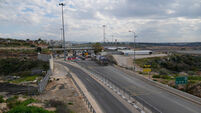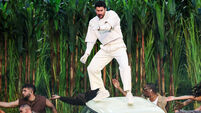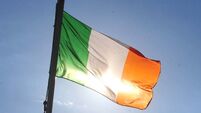Knowledge is power, and Israel is intent on destroying both in Gaza

A relative carries the body of Palestinian infant Jabr Al-Ashhab last week who was killed in an Israeli military strike. Recently released figures from a classified Israeli military intelligence database show that 83% of those killed in Gaza by May 2025 were civilians. Photo: AP/Jehad Alshrafi
A recent Israeli study titled Debunking the Genocide Allegations: A Reexamination of the Israel-Hamas War (2023-2025) led by academics at The Begin-Sadat Center for Strategic Studies at Bar-Ilan University makes for unnerving reading.
While leading genocide scholars all over the world now support the claim that Israel is committing a genocide in Gaza, this document claims otherwise. Here, in eloquent academic language, neatly titled and subtitled are a range of justifications, deflections and denials of accountability for some of the most horrific war crimes in modern history.
















